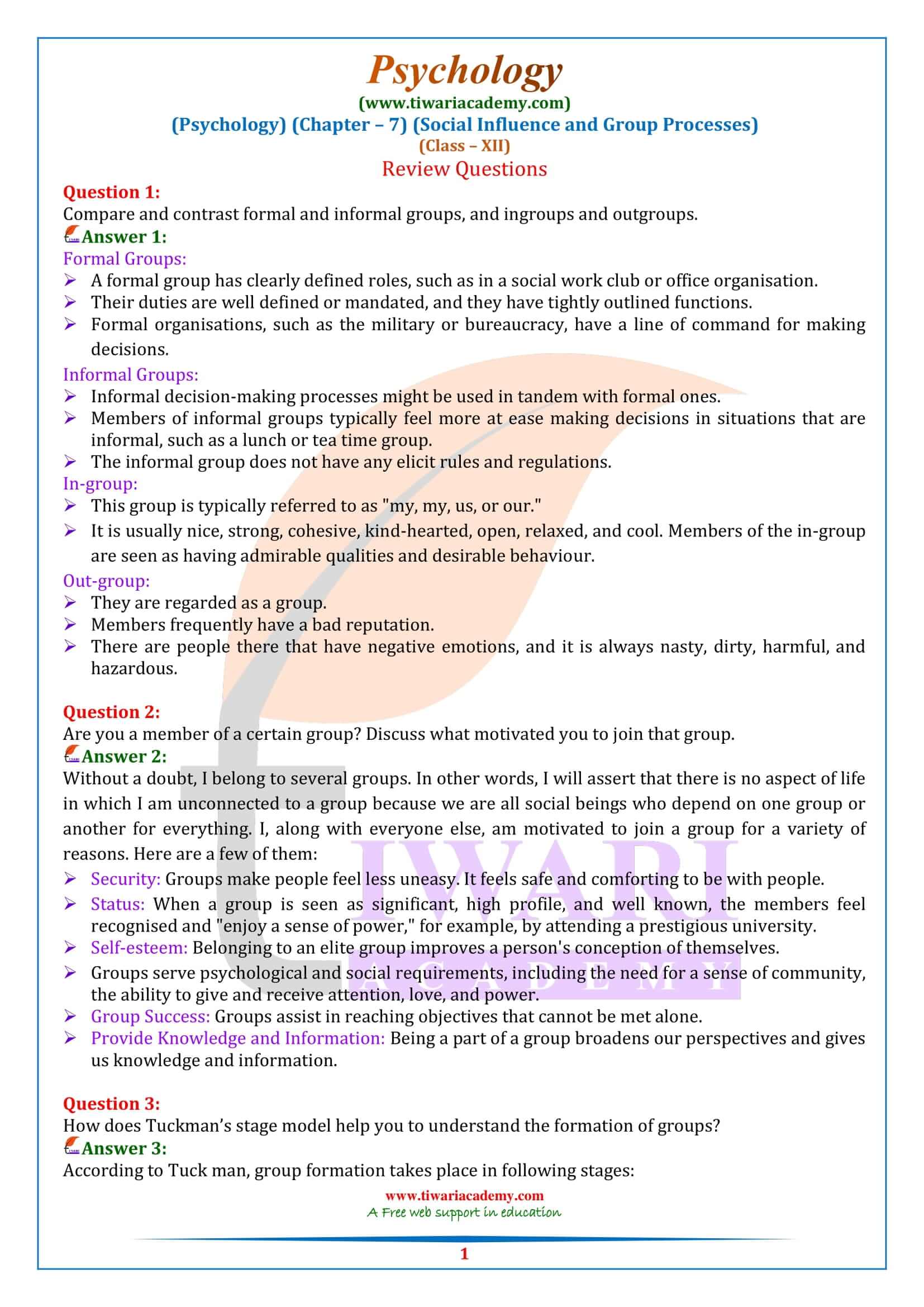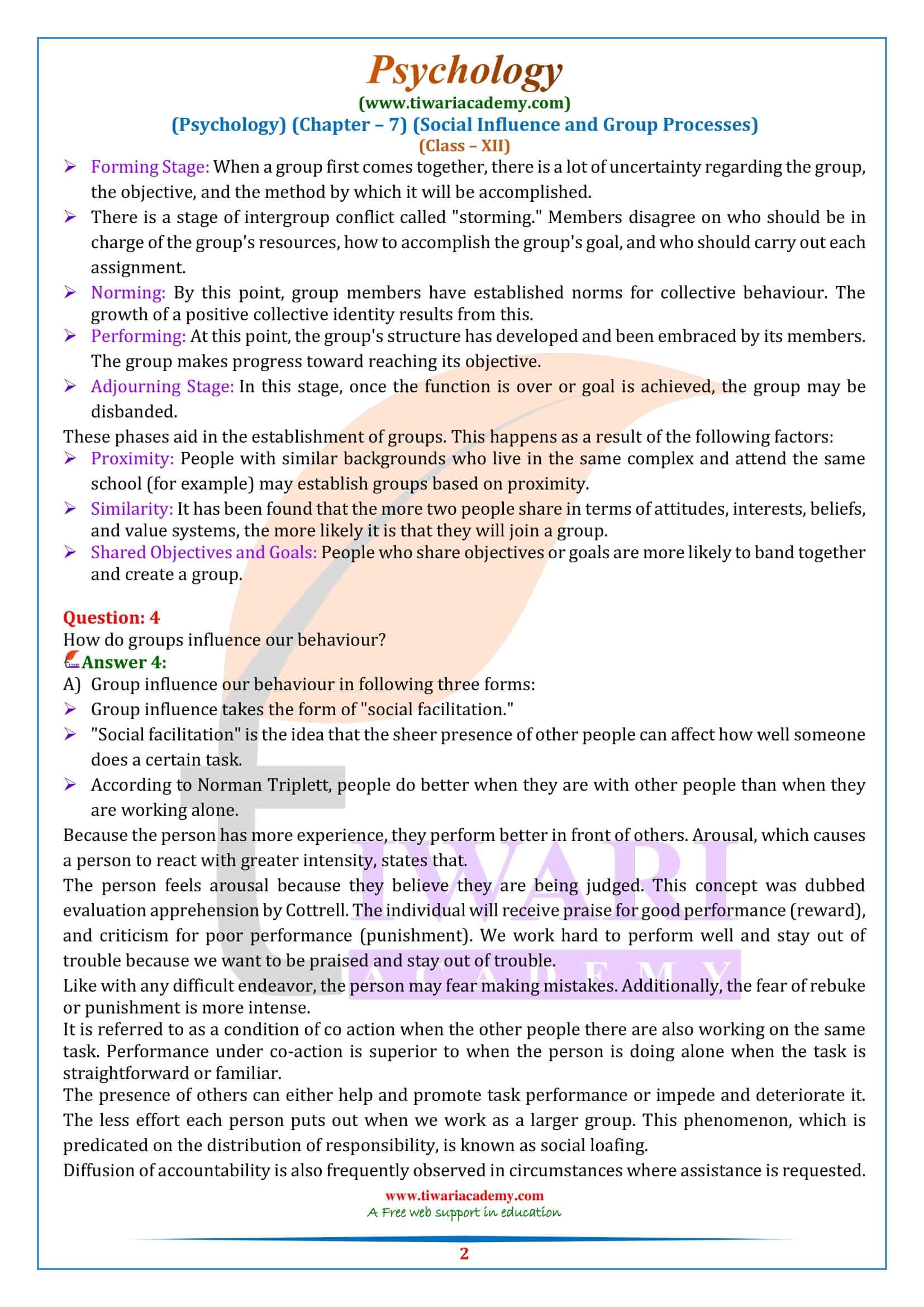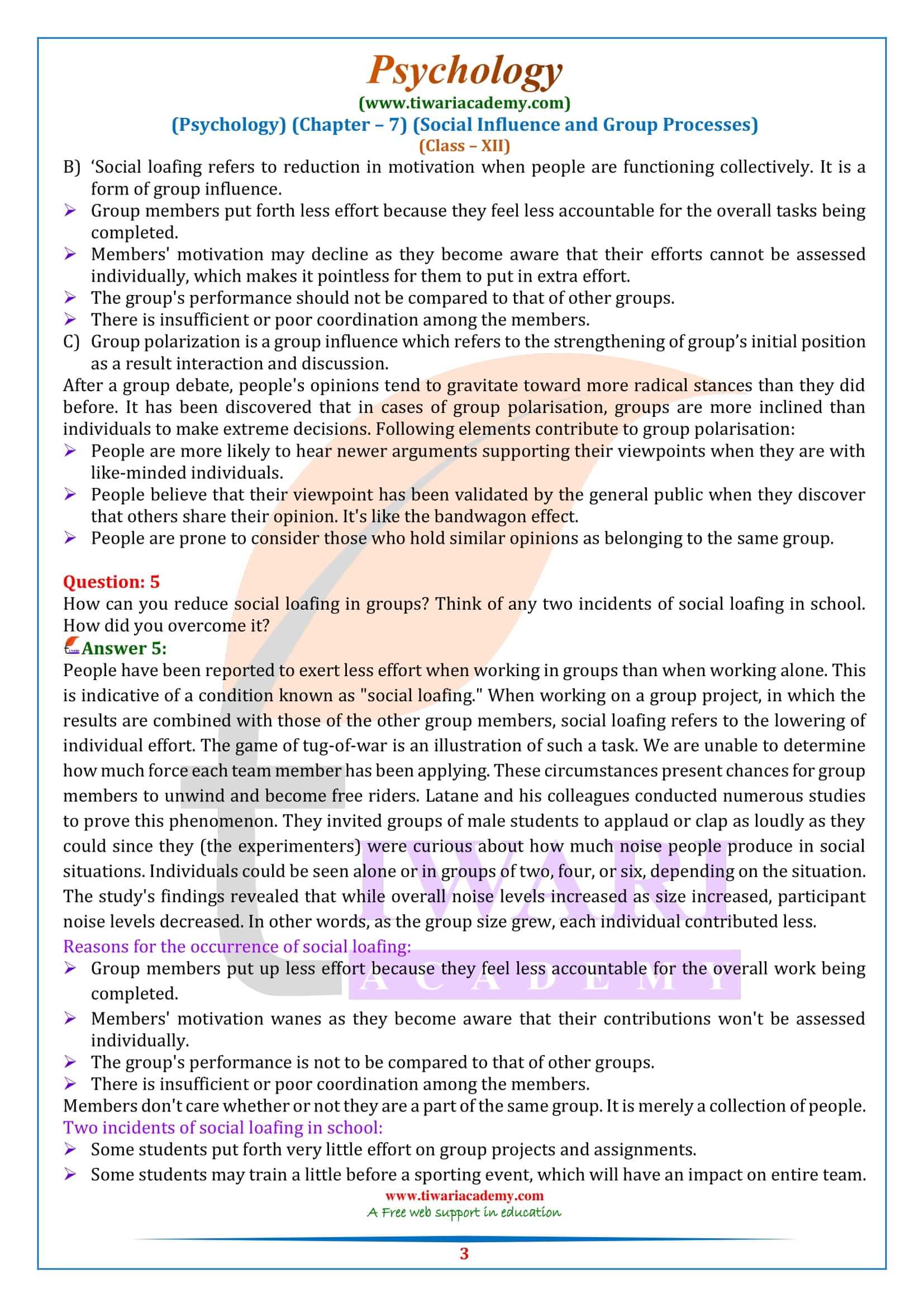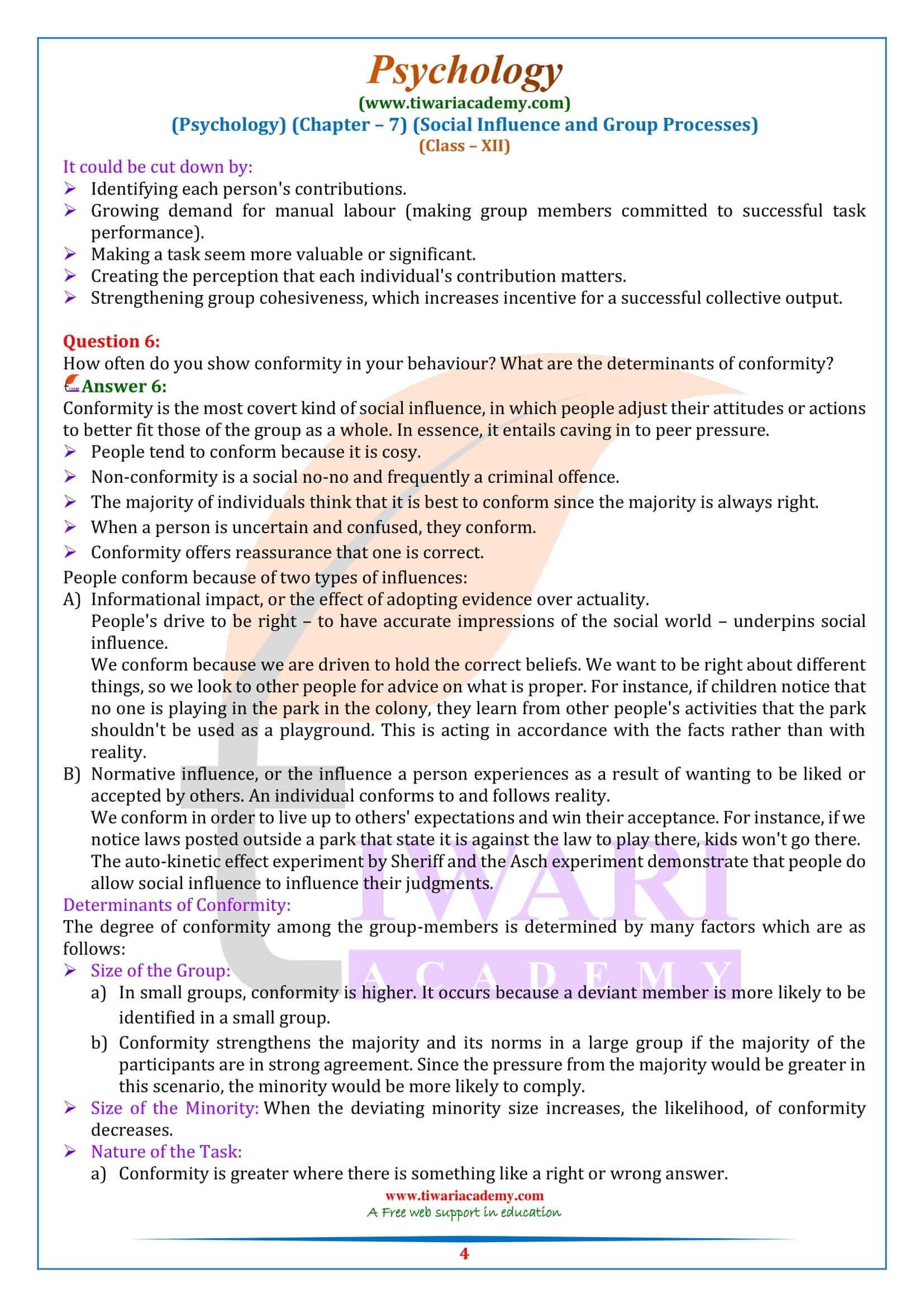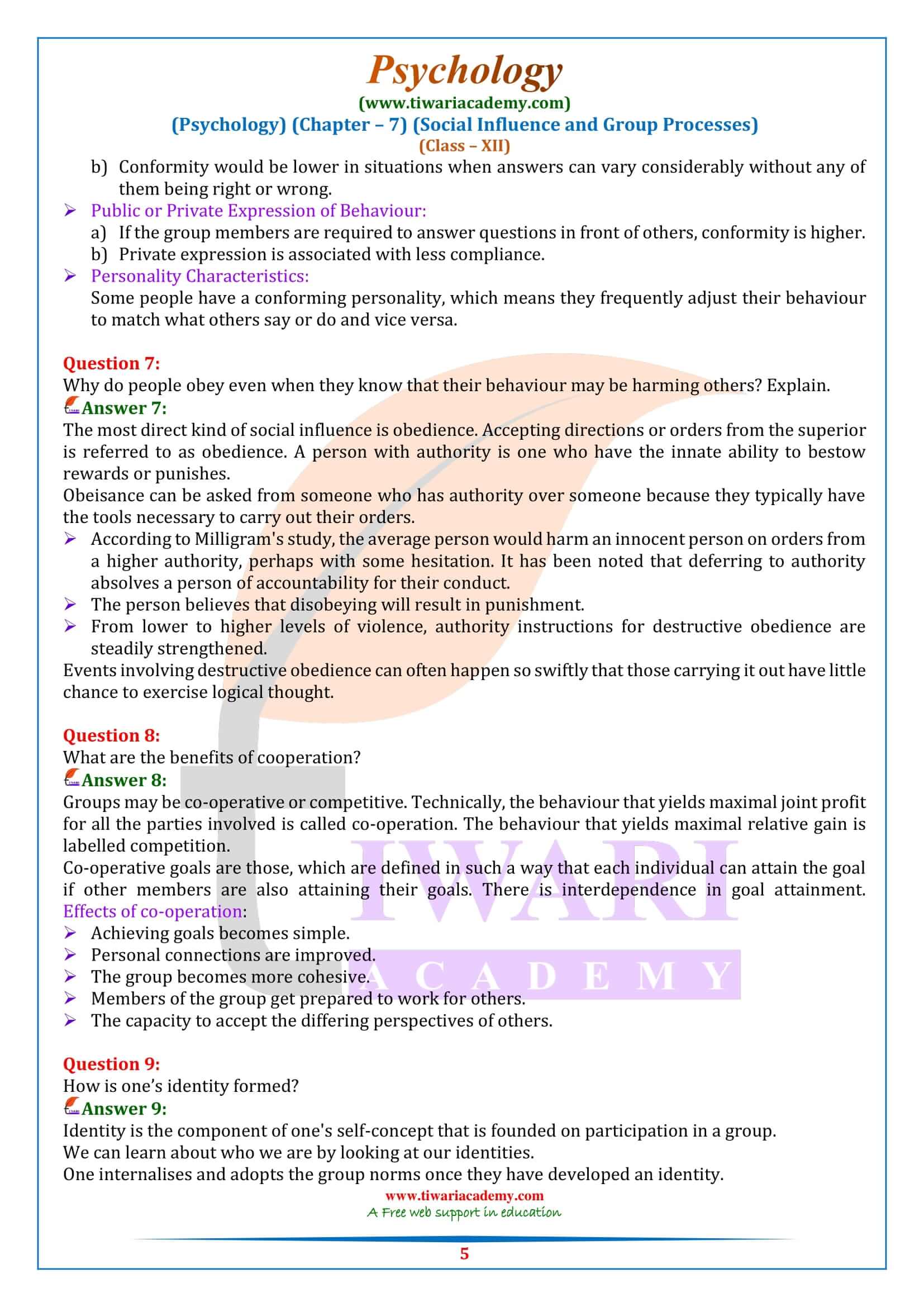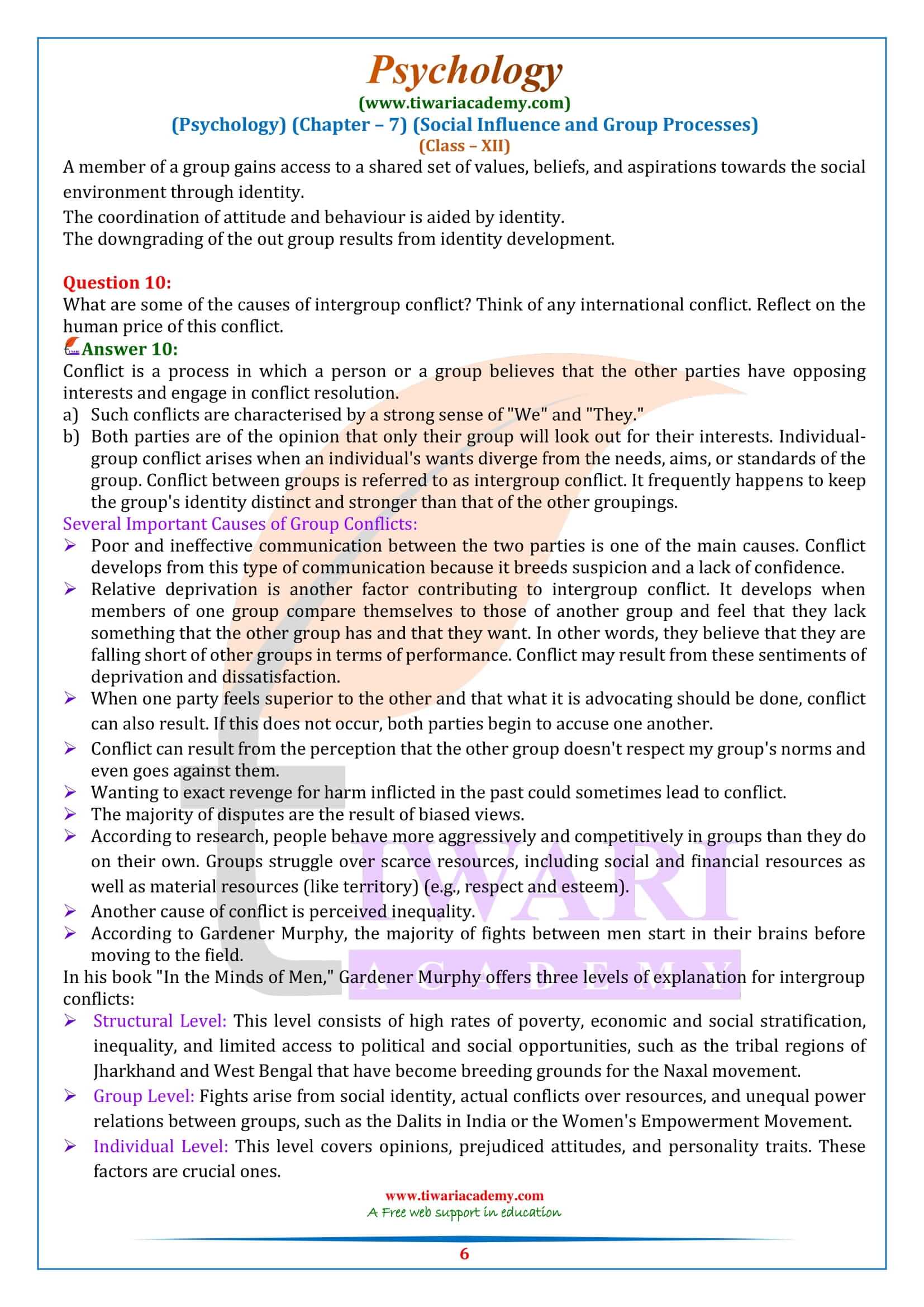NCERT Solutions for Class 12 Psychology Chapter 7 Social Influence and Group Processes updated for new academic session 2025-26. All the question answers of 12th Psychology with MCQs are important for CBSE as well as State board students.
NCERT Solutions for Class 12 Psychology Chapter 7
Class 12 Psychology Chapter 7 Social Influence and Group Processes Question Answers
Compare and contrast formal and informal groups, and ingroups and outgroups.
Formal Groups:
- A formal group has clearly defined roles, such as in a social work club or office organisation.
- Their duties are well defined or mandated, and they have tightly outlined functions.
- Formal organisations, such as the military or bureaucracy, have a line of command for making decisions.
Informal Groups:
- Informal decision-making processes might be used in tandem with formal ones.
- Members of informal groups typically feel more at ease making decisions in situations that are informal, such as a lunch or tea time group.
- The informal group does not have any elicit rules and regulations.
In-group:
- This group is typically referred to as “my, my, us, or our.”
- It is usually nice, strong, cohesive, kind-hearted, open, relaxed, and cool. Members of the in-group are seen as having admirable qualities and desirable behaviour.
Out-group:
- They are regarded as a group.
- Members frequently have a bad reputation.
- There are people there that have negative emotions, and it is always nasty, dirty, harmful, and hazardous.
Why do people obey even when they know that their behaviour may be harming others? Explain.
The most direct kind of social influence is obedience. Accepting directions or orders from the superior is referred to as obedience. A person with authority is one who have the innate ability to bestow rewards or punishes.
Obeisance can be asked from someone who has authority over someone because they typically have the tools necessary to carry out their orders.
According to Milligram’s study, the average person would harm an innocent person on orders from a higher authority, perhaps with some hesitation. It has been noted that deferring to authority absolves a person of accountability for their conduct.
The person believes that disobeying will result in punishment.
From lower to higher levels of violence, authority instructions for destructive obedience are steadily strengthened.
Events involving destructive obedience can often happen so swiftly that those carrying it out have little chance to exercise logical thought.
What are the benefits of cooperation?
Groups may be co-operative or competitive. Technically, the behaviour that yields maximal joint profit for all the parties involved is called co-operation. The behaviour that yields maximal relative gain is labelled competition.
Co-operative goals are those, which are defined in such a way that each individual can attain the goal if other members are also attaining their goals. There is interdependence in goal attainment.
Effects of co-operation:
- Achieving goals becomes simple.
- Personal connections are improved.
- The group becomes more cohesive.
- Members of the group get prepared to work for others.
- The capacity to accept the differing perspectives of others.
How is one’s identity formed?
Identity is the component of one’s self-concept that is founded on participation in a group.
We can learn about who we are by looking at our identities.
One internalises and adopts the group norms once they have developed an identity.
A member of a group gains access to a shared set of values, beliefs, and aspirations towards the social environment through identity.
The coordination of attitude and behaviour is aided by identity.
The downgrading of the out group results from identity development.
